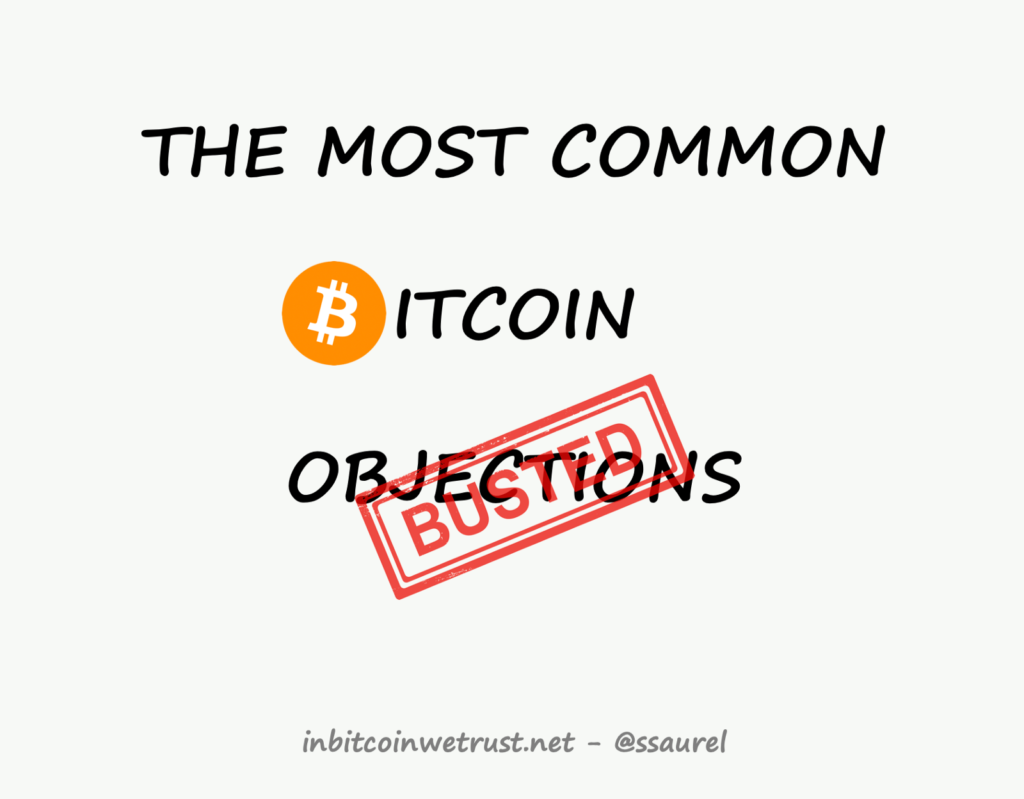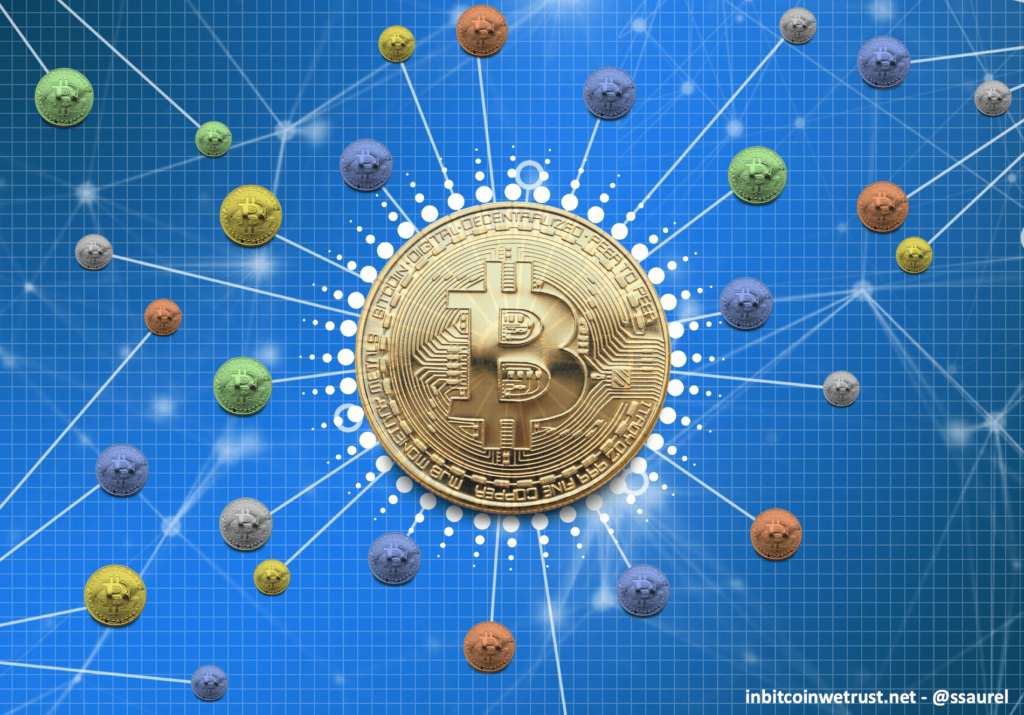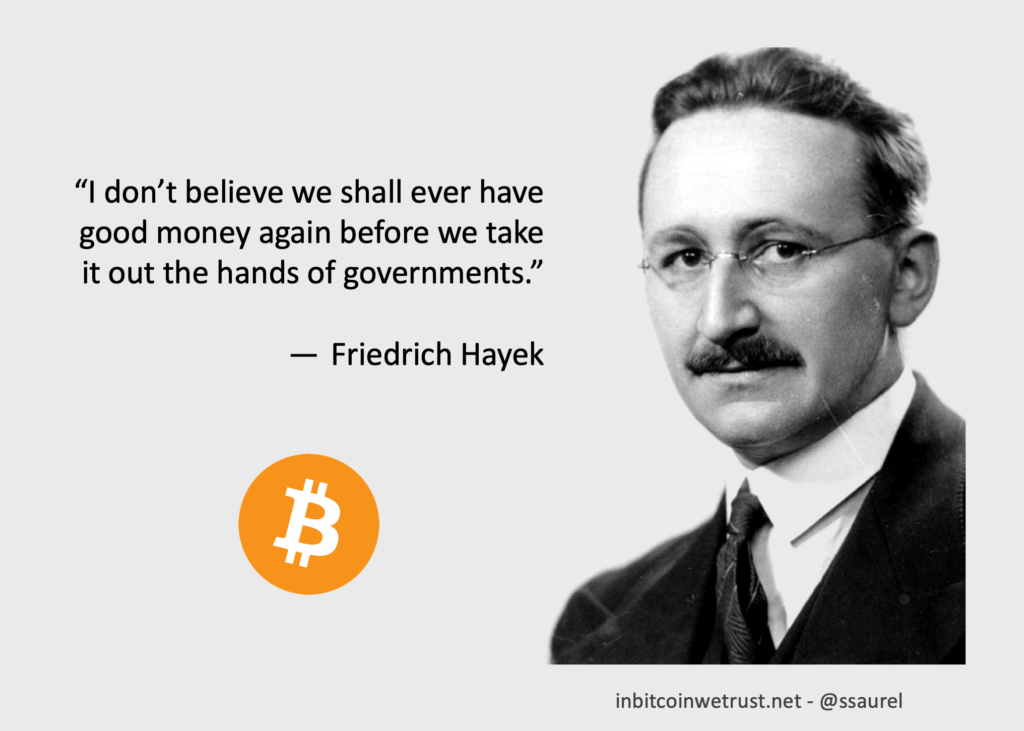An opportunity to demystify the most common Bitcoin objections once again.

The world we live in is more uncertain than ever. It is a reality that many people have rediscovered with astonishment following the coronavirus pandemic that has hit the world since the beginning of 2020.
In this totally uncertain world, however, there are some certainties:
- Central banks will print more and more money out of thin air.
- Governments will borrow more and more money, which will continue to skyrocket the public debts of the world’s major economic powers.
- Opponents of Bitcoin will continue to use the same outdated clichés to relentlessly attack Bitcoin.
- The fundamentals of Bitcoin will remain unchanged.
Among these certainties, only one is good for your future regarding money. It is the fundamentals of Bitcoin that make it a great hedge against uncertainty.
As for the other three certainties, they give me the impression that we are like Phil Connors, played by the inimitable Bill Murray in the movie “The Groundhog Day”. Every day the same things happen again and again. We struggle to improve the current system and making people realize that only Bitcoin can get us out of the vicious circle of the current monetary and financial system.
And then, the next morning when we wake up, everything starts all over again. The same people make the same completely false attacks against Bitcoin. The central banks continue to apply the same monetary policies that are at the root of all the economic crises that we have suffered for decades. Governments continue to increase public debts, thereby mortgaging the destiny of future generations.
Among the objections to Bitcoin, there are six that keep coming up. In what follows, I propose to show you once again why these objections are totally false. Most importantly, you will understand that the powerful in the current system use these objections simply to prevent the people from taking power over their money by buying Bitcoin.
Bitcoin is a Ponzi Scheme
Since its inception, Bitcoin has very often been accused of being a Ponzi Scheme by its critics. On the last day of the year 2019, Tendayi Kapfidze, the chief economist at America’s largest online lending marketplace LendingTree, wanted to make a name for himself by declaring:
“I am convinced that Bitcoin is nothing more than a pyramid scheme. You only make money based on people who enter after you.”
This attack is nothing new, as it frequently occurs when economists or politicians wish to criticize Bitcoin and find no real argument against it. To put an end to this myth now, I suggest you refer to the detailed report on Ponzi Schemes published in 2014 by the World Bank.
This report was written by the highly respected Kaushik Basu, former Chief Economist of the World Bank but also Professor of Economics at Cornell University.
In his report, Kaushik Basu says in particular:
“Contrary to a widely-held opinion, Bitcoin is not a deliberate Ponzi. And there is little to learn by treating it as such. The main value of Bitcoin may, in retrospect, turn out to be the lessons it offers to central banks on the prospects of electronic currency, and on how to enhance efficiency and cut transactions cost.”
Kaushik Basu
I think there’s nothing more to add. Just read what Kaushik Basu says in his report, and even more so what he demonstrates. The people who continue to think that Bitcoin is a Ponzi Scheme in 2021 are clearly misinformed people with whom you should not waste your time.
Bitcoin promotes money laundering and illicit activities
The powerful people at the head of the current system love to put forward this cliché that is all the rage with the general public. Bitcoin would promote money laundering as well as the financing of illegal activities.
At the beginning of 2021, Christine Lagarde, the president of the European Central Bank, has once again used this objection at the Reuters Next conference:
“Bitcoin is a highly speculative asset, which has conducted some funny business and some interesting and totally reprehensible money laundering activity.”
A few days later, it was the turn of Janet Yellen, soon to become Secretary of the Treasury in the United States, to attack Bitcoin and cryptocurrencies, saying that stricter regulation should be put in place as soon as possible:
“I think many cryptocurrencies are used, at least in a transaction sense, mainly for illicit financing and I think we really need to examine ways in which we can curtail their use and make sure that anti-money laundering doesn’t occur through those channels.”
Unlucky for these two people who hold important positions in the current system, Chainalysis released its 2021 Crypto Crime Report at the same time. In his annual report, Chainalysis has just estimated that 10 billion dollars had been used for illegal purposes in 2020 in the cryptocurrency world. This is a reduction of half compared to 2019.
It represents only 0.34% of all transactions in 2020 in the cryptocurrency world.
Meanwhile, more than 2,000 billion dollars are used in the current system every year for illegal activities. So I’m sorry to disappoint Janet and Christine, but if they want to tackle the problem of money laundering and the financing of illegal activities, they have to look at the U.S. dollar and the Euro. Obviously, they won’t.
Sticking to this estimate of 2,000 billion dollars used annually for illegal activities in the current system means that for every U.S. dollar used for illegal activities, only $0.005 is used for illegal activities in the cryptocurrency world.
This is enough to put a definitive end to this objection, which constantly comes up in the mouths of the opponents of Bitcoin.
Bitcoin has no intrinsic value
Many opponents of Bitcoin keep coming back to the charge that Bitcoin produces nothing, and that it has no intrinsic value. I even took the time to write an open letter to Peter Schiff in mid-2020 to answer this question of the intrinsic value of Bitcoin.
Bitcoin has value because more and more users think it has value. It is the same with all fiat currencies. The notable difference is that it is your governments that force you to consider the U.S. Dollar or the Euro to have any value.
With Bitcoin, it’s totally different. Adopting Bitcoin is a matter of trust. Everything is done voluntarily. The success of Bitcoin is therefore phenomenal from this point of view. If Bitcoin has managed to reach a market cap of more than 700 billion dollars at the beginning of 2021, it is because more and more people are making Bitcoin their number one choice when looking for a store of value.
Bitcoin responds to a need that will continue to grow in the years to come: that of having a store of value to protect the fruits of its labor from the ravages of monetary inflation in a way that is resistant to censorship.
For millions of people, Bitcoin already has incredible value. This value will only increase in the future as the mass adoption of Bitcoin as a store of value progresses. The next phases will be that of Bitcoin as a means of exchange in everyday life, and then that of Bitcoin as a unit of account.
This will take time, but the revolution will come to an end in the future. All you have to do is be patient and keep full confidence in the Bitcoin revolution.
Bitcoin will be replaced by cryptocurrencies with superior technology
Bitcoin was presented to the world on October 31, 2008, by Satoshi Nakamoto. Its network was officially launched a few weeks later on January 3, 2009. For twelve years, the Bitcoin network has been running permanently. Its technology has not changed. Its fundamentals have remained the same, which is incredible strength in a world as uncertain as ours.
For the opponents of Bitcoin, this stability of Bitcoin is precisely what heralds the coming end of Bitcoin. Listening to them, Bitcoin’s technology is outdated. New cryptocurrencies are launched every day. One of them will eventually overtake Bitcoin.
Many finally take the example of Myspace and say that the network could not keep its first-mover advantage for long. The arrival of Facebook then changed everything. Today, Facebook is the undisputed leader in the world of social networks, and Myspace no longer represents anything.
This example is used frequently. It is totally false. Bitcoin should be seen as a protocol. Bitcoin is the protocol of money for the Internet. It will not be replaced by more powerful technology. Bitcoin will evolve and be constantly improved.
Searching for the next Bitcoin is as useless as searching for the next Internet.
Moreover, the dominance of Bitcoin is not related to its technology, but its superior monetary attributes. Bitcoin invented digital scarcity. It is based on 3 unique properties never seen simultaneously in a human invention until now. Bitcoin is at once digital, decentralized, and scarce.
No other cryptocurrency can compete with Bitcoin on these three properties. Bitcoin has a unique advantage that makes it remain the king no matter what. Besides, Bitcoin is unique because it puts people at the center of the system.
Bitcoin is too volatile to be a reliable store of value
Bitcoin’s volatility is a feature, not a bug. It comes from the fact that Bitcoin is the only truly free market in the world. Its network is always running, and its users have the freedom to find Bitcoin’s equilibrium price. There are no circuit-breakers in the Bitcoin world as there are in the stock market.
De facto, its volatility is higher. Once you understand that this volatility is part of the game, you will be able to make it your greatest ally.
The best way to take advantage of this volatility in the Bitcoin price is to buy Bitcoin in DCA (Dollar-Cost Averaging) mode automatically. Then you will need to become a Bitcoin HODLer. To do so, you need to really understand the why of Bitcoin which will help you develop a long-term vision.
Everyone who has a long-term vision of Bitcoin will end up benefiting from it. It’s all about time, patience, and trust. Since 2010, the price of Bitcoin has risen from less than $0.1 to over $34K at the time of writing. Bitcoin is the best store of value available to the greatest number.
The trick is to understand how it works to take advantage of Bitcoin.
As Bitcoin’s market cap increases, this volatility will tend to decrease, which will encourage the use of Bitcoin as a means of exchange in everyday life. We will then be in Phase 2 of the mass adoption of Bitcoin. Most importantly, by that time, Bitcoin will have caught up with and then surpassed the gold market cap. It is only a matter of time because the success of Bitcoin is inevitable.
Bitcoin will be banned by the regulators
Opponents of Bitcoin keep repeating that if Bitcoin becomes too big, it will end up being banned definitively by the regulators of the world’s major economic powers. This is something that comes up frequently.
Bitcoin was created precisely to allow you to hedge against this type of arbitrary decision by the powerful people at the head of the current system. As of 2014, a senior member of the Federal Reserve Bank of Saint Louis studied Bitcoin and concluded that “enforcing an outright ban on Bitcoin is close to impossible… well-run central banks should welcome the emerging competition”.
Any attempt to punish those who possess Bitcoin would end up reinforcing the very existence of the Bitcoin system. To stop the Bitcoin network completely, the Internet would have to be shut down, which would mean shutting down the current banking system as well. Unthinkable!
However, the Bitcoin developer community has foreseen this worst-case scenario by developing a solution that would allow a node of the Bitcoin network to continue to operate via satellite communication. Therefore, even a generalized shutdown of the Internet will not be enough to stop the Bitcoin network.
Rather than fighting unnecessarily Bitcoin, it seems to me that the authorities will instead try to integrate Bitcoin into the current system. Rather than fighting, the American authorities intend to take advantage of Bitcoin. In the summer of 2020, the Office of the Comptroller of the Currency (OCC), which is a branch of the United States Treasury Department, gave the green light to American banks to offer Bitcoin services to their customers.
The U.S. government collects billions of dollars in taxes each year on the profits generated with Bitcoin by their U.S. citizens. There is therefore no interest in depriving themselves of such a financial windfall. Further regulation will be defined sooner or later, but it will not seek to ban Bitcoin. Rather, it will seek to take advantage of it.
No concern for Bitcoin and its users from this point of view.
Final Thoughts
Opponents of Bitcoin keep criticizing Bitcoin using the same objections. The problem is that it has been proven many times already that these objections are totally false. Unfortunately, false information seems to get into the minds of the general public more easily.
This is logical since the false information is propagated by politicians, bankers, economists, and journalists in whom the people often have great confidence.
Unfortunately, these people abuse this trust in an attempt to protect the current monetary and financial system at all costs. As a Bitcoiner, my role is to keep coming back to this false information to help as many people as possible to see what Bitcoin really is, and what it can do for your future.
This is what I hope to have done with this story.

